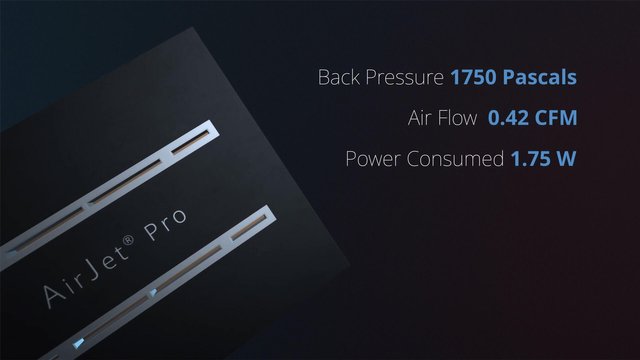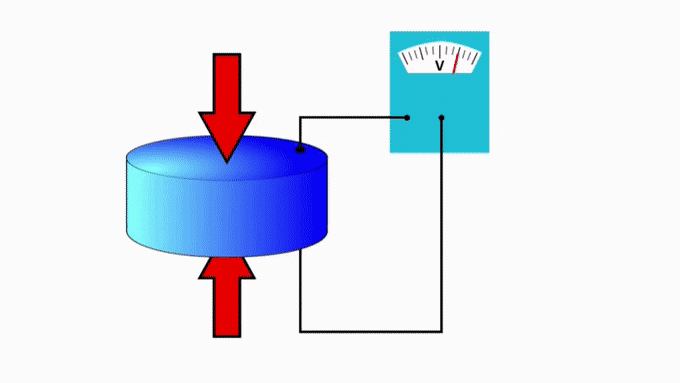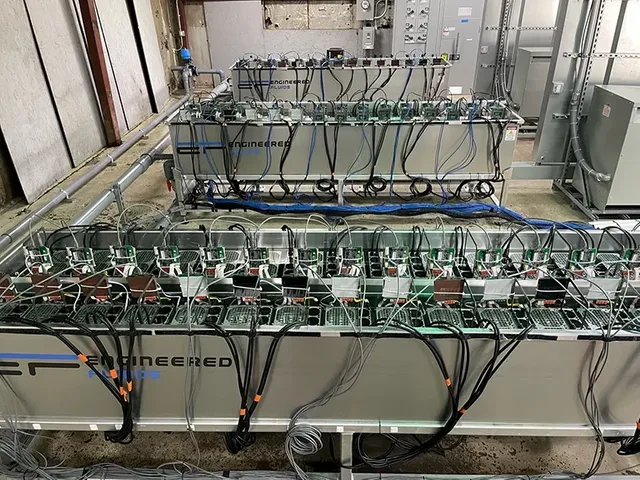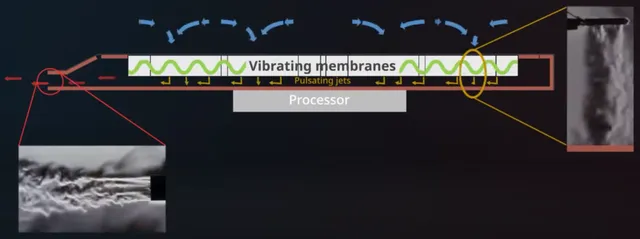
When cooling computer chips, you usually fall into these two options: air cooling or liquid cooling. The former uses heatpipes to transfer heat to dozens of fins, which are cooled with fans. The latter uses liquid to transfer heat to a radiator where attached fans dissipate the heat out of the system. There is also passive cooling, but it is very uncommon on PCs and requires super low powerdraw hence why this solution is common on ARM devices (smartphones).
However, Frore Systems has developed a rather innovative solution where you can get the best of both worlds: a super compact computer and potent cooling. The AirJet Pro and Mini are solid state chips that actively cool via piezoelectrics. An alternating current powers the membrane inside these coolers. This causes the membrane to oscillate at a very high frequency, creating a lot of static pressure and a powerful jet of air through the exhaust.

What makes the AirJet the most advantageous is its low footprint and efficiency. These coolers are very small at 27.5 mm x 41.5mm x 2.8 mm for the Mini and 31.5mm x 71.5mm x 2.8 mm for the Pro. Despite their miniature size, they work rather efficiently as they do not run into a common problem traditional cooling faces: boundary layers. As Linus explains in his Frore AirJet video, as the closer the air approaches the fins, the closer the velocity approaches to zero. This, in turn, creates an insulated layer of air that makes dissipating heat difficult. The membrane of the Frore AirJet, on the other hand, oscillates in a rapid wave which helps it get around this problem.
This has massive implications on portable and mini computers going forward. As demonstrated in PCWorld's video on the upcoming Zotac Zbox, this is not merely a proof of concept. It actually works in practice and brings substantial performance improvements over passive cooling.
Portable devices such as a hypothetical Steam Deck 2 and the upcoming Switch 2 will greatly benefit from the AirJet. The traditional air cooling solutions in portable devices take up a lot of real estate. Not to mention, when running at full speed, the fans can get rather noisy. But because the AirJet coolers are so space efficient, this can give Valve and Nintendo more room to provide a larger capacity battery. Combined with the improved cooling efficiency, that means more hours of gameplay away from the wall.
A fellow writer on Publish0x wrote an article a few months ago on whether the AirJet can be used on ASICs and mining rigs. I can see why he would be excited. Air coolers are big and very loud. Immersion cooling also takes up a lot of space and has a huge upfront cost. The space efficiency of the AirJet will allow mining firms to fit in many more ASICs or rigs in the same amount of volume, effectively boosting the hashrate. However, it should be emphasized that the one AirJet Pro chip only dissipates 10.5W of heat whereas ASICs and mining rigs consume hundreds of watts. I do not know what an ASIC-worthy AirJet will look like, but I would imagine it will be longer and use a thicker copper plate. If Frore Systems manages to come up with an effective solution, this will not just revolutionize consumer electronics, but also crypto mining.

Immersion cooling is very good at dissipating several kilowatts of heat, but they are also extremely expensive. Source of image.
This article is co-published on Odysee, Publish0x, Read.cash.
Thumbnail originates from Frore System's homepage.
